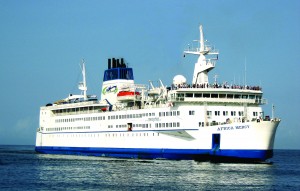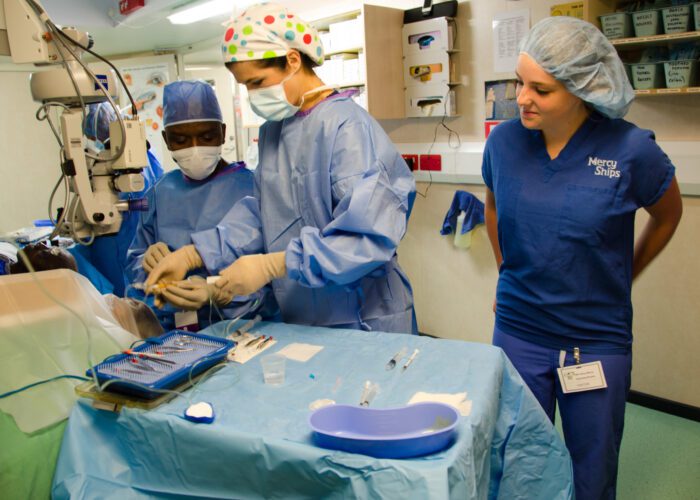
A graduate from Birkenhead has returned home after assisting on board the largest hospital ship in the world.
Lizzie Clegg volunteered her services for three months on the Africa Mercy ship, a vessel which is run by international charity Mercy Ships and provides free medical and humanitarian aid to some of the most deprived people in the world.
The ship is now attending to those in Guinea in a ten-month outreach programme, as its people make up some of the poorest in West Africa, despite the country’s mineral wealth.
The 21-year-old Biological Sciences graduate had allocated jobs which included cooking for around 400 people each day, as well as working in the ship’s galley and helping with the care of patients on her days off.
Lizzie was happy to gain the valuable experience after graduating. She said: “I want to be a doctor and as the applications are so competitive it is really important to have some experience working with patients. I wanted to do something where I could actually help people. Mercy Ships provided a perfect opportunity to do that.
“I also really loved working with the eye team. It’s so rewarding to see people’s lives literally transformed in front of your eyes. People who have been unable to see for years have their sight restored. They are so happy it makes everything worthwhile.”
Hundreds of volunteers from as many as 40 different nations are on the Africa Mercy ship and jobs vary from nurses to chefs and even engineers.
Since it was founded it 1978, Mercy Ships has provided care for over 70 countries worldwide, helping in excess of two million people.
Judy Polkinhorn, Executive Director of Mercy Ships UK, told JMU Journalism that volunteers are massively valued within their organisation: “Without volunteers like Lizzie, Mercy Ships would be unable to do the huge amount of good they currently carry out in poverty stricken areas such as Guinea.
“We are enormously thankful to the vast amount of volunteers who not only give their time and expertise to Mercy Ships but pay for their own flight costs and subsidence whilst serving in order for us to continue saving lives.”

